United and American Have Claimed Basic Economy Will Mean $1 Billion a Year in Profit
Scott Kirby when he was President of American Airlines talked about Basic Economy as something that would be worth $1 billion to the airline. He modified somewhat to talk about segmentation (basic economy and premium economy combined) as worth $1 billion. He’s used the $1 billion figure at United now that he’s President there as well.
Now that it’s rolled out across United’s network Kirby says they’re actually losing business because of Basic Economy. Customers are choosing other airlines that offer their ‘full product’ (seat assignments, being allowed a carry on bag) at the lowest price. But he knows American Airlines will jump in with Basic Economy fares in fact they plan a full roll out come September and he thinks that will stop the bleeding.
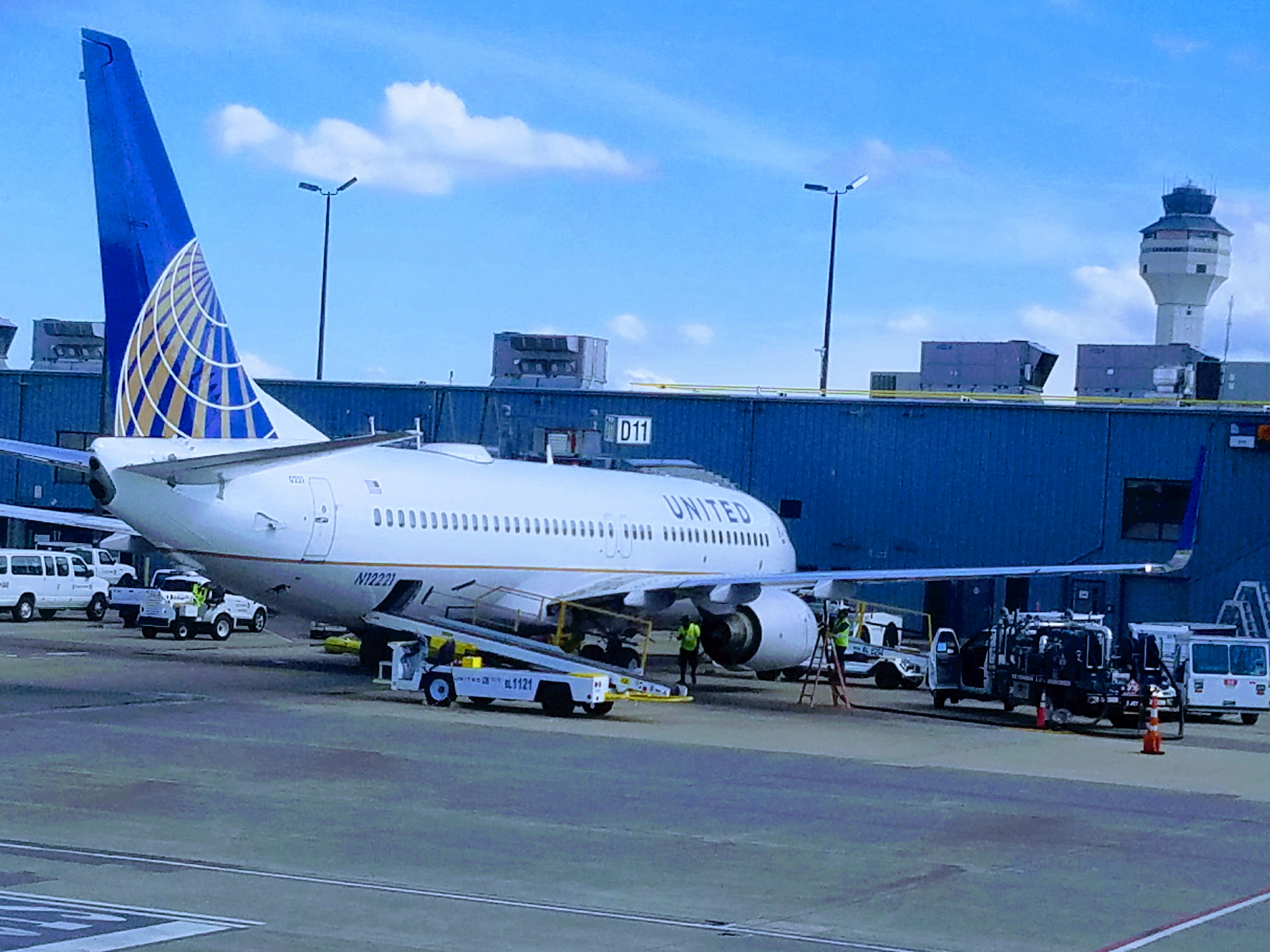
How Basic Economy is Doing So Far — How That Justifies the $1 Billion Claim
Basic Economy is a fare increase, albeit a complicated one. The airline offers less value at the same price hoping the travel experience at Basic Economy proves unpleasant enough so that customers will spend more money rather than choosing to fly someone else.
American Airlines in its earnings call on Friday shared that in test markets:
- 50% of customers who buy American tickets are buying up to regular economy
- The average buy up is $23
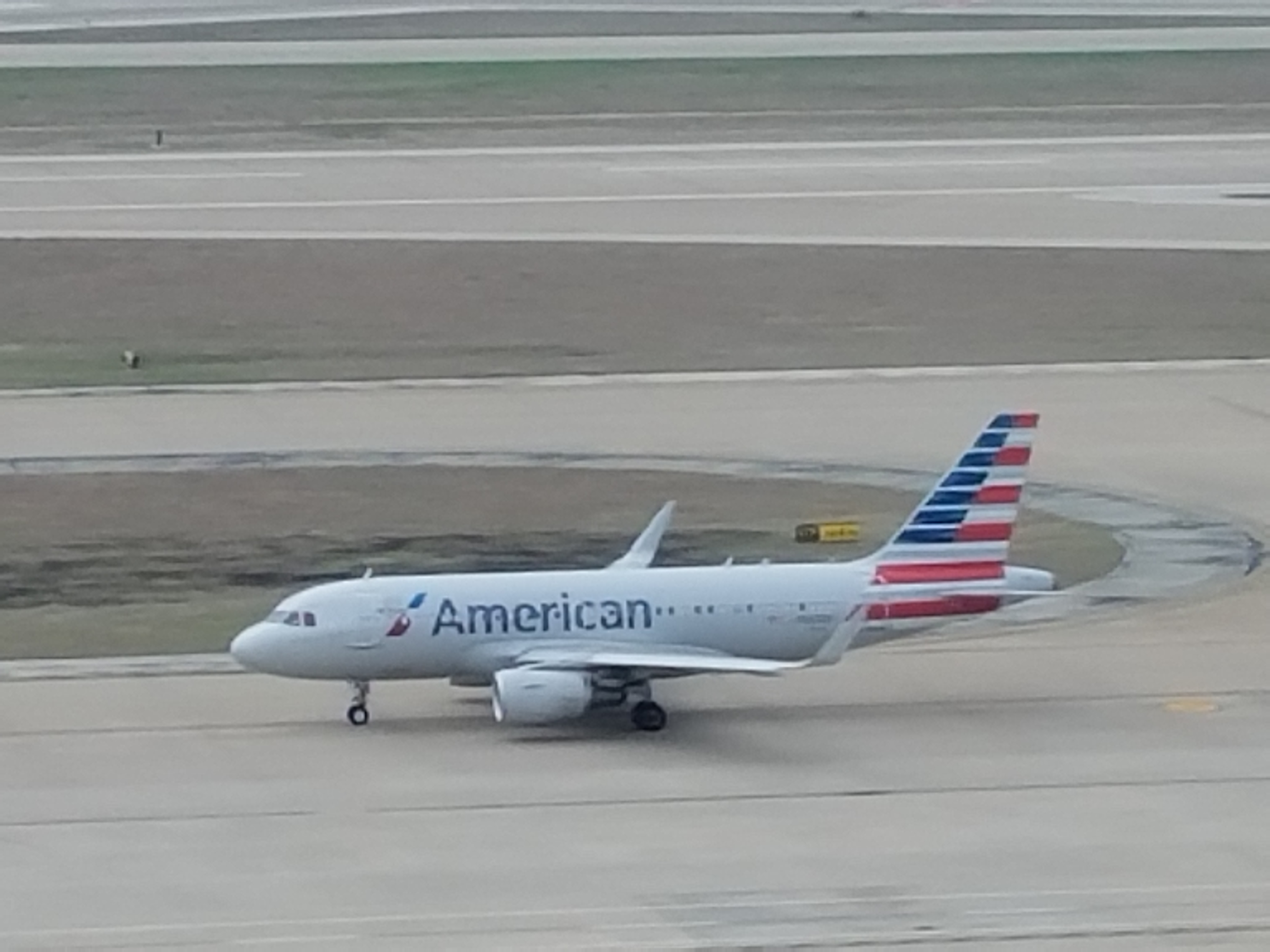
These numbers likely aren’t precise, but let’s take American’s statements at face value and literally.
Again, this is customers who actually buy tickets rather than choosing to buy from someone else because of Basic Economy. However it means that on average per passenger American is bringing in an addition $11.50 ($23 x 50%).
At an average domestic airfare of $352 (first quarter of 2017, per Department of Transportation) that’s an average fare increase of 3.3% ($11.50 / $352).
A 3.3% increase over American’s $34.6 billion in passenger revenue in 2016 — if Basic Economy performance in test markets applied consistently across all markets and if Basic Economy was rolled out to all markets — would mean an additional $1.14 billion in revenue.
Alternatively, with 144 million passenger enplanements last year if American received an additional $11.50 per person on average they’d generate $1.65 billion.
But You Don’t Get to Upsell Everyone From Basic Economy
Not every customer was booking the cheapest economy fare to begin with. There are corporate travelers who are getting higher fare classes contractually. And customers buy premium cabin fares. There’s no ‘Basic Business’ or ‘Basic First’ (yet?).
And even for those customers looking for the cheapest coach fares, American can hit customers over the head with how miserable the Basic Economy experience will be.
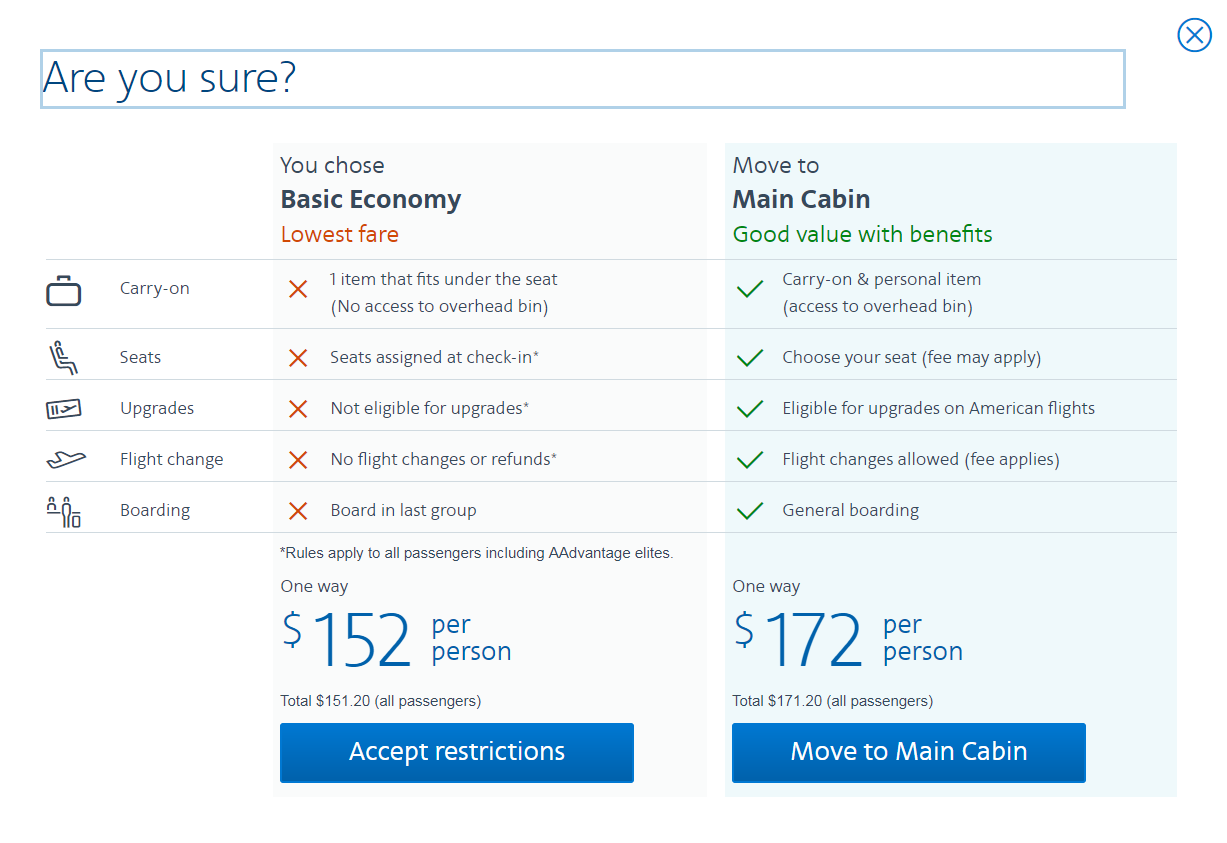
Book elsewhere and the information is there, but it’s not a pop up warning pushing the upsell.
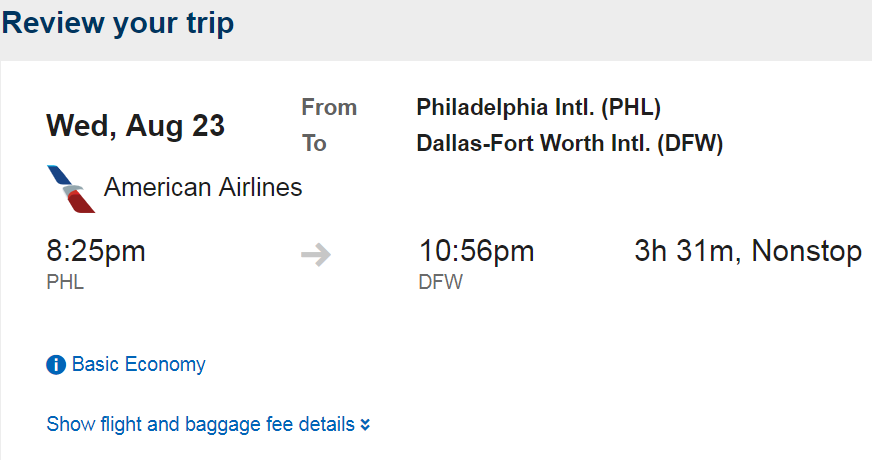

If Airlines Could Just Raise Fares 3.3%, They’d Just Raise Fares 3.3%
The truth is that if airlines could hold a 3.3% fare increase, they’d have done it already without Basic Economy. The trick to Basic Economy is that they increase fares more than that on some customers who are especially misery-averse in their travel and have the resources to spend more, while offering the same fare as before to other customers. In other words the goal is a fare increase on only some customers, while making other customers less comfortable.
The problem with this is that:
- Some people stay home
- Other people fly other airlines
- Still others drive or take alternate transportation
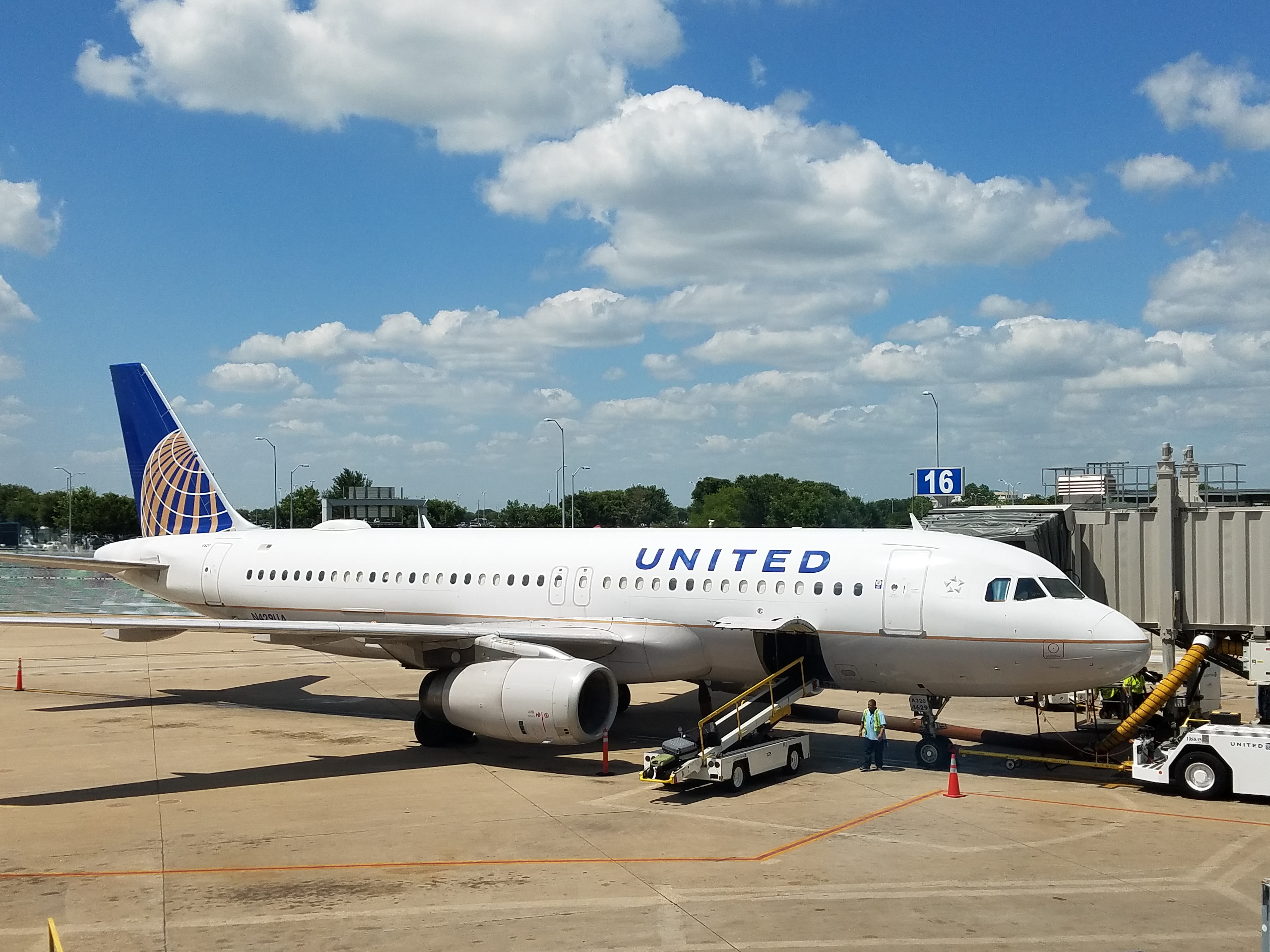
$80 Million is More Realistic, Customers Aren’t (All) Stupid
You can play all sorts of games with spreadsheets and assumptions! A year ago Delta said Basic Economy was worth an annualized $80 million. Delta was years ahead with Basic Economy and their experience should dampen expectations.
And there’s even reason to be skeptical of Delta’s $80 million number because it doesn’t appear to factor lost revenue from customers booking away.
We know — and United admits — that customers are smart enough to book away from Basic Economy. Southwest, JetBlue, and Alaska offer better value to consumers at the same price. They offer more legroom, they allow customers to bring carry on bags onto the plane.
Even Delta offers more value with its Basic Economy fares because they don’t restrict customers from bringing a personal item and a carry on.
American Will Start Losing More Customers in September
So customers will continue to book away from United and come September American because those airlines will offer less value than competitors at the same price.
During United’s quarterly investor call analysts pressed Kirby — he was suggested that Basic Economy would be ‘immediately accretive’ but that hasn’t been the case. If his predictions aren’t coming true so far, why should we believe predictions even farther into the future will be correct?


Scott Kirby doesn’t have a clue what he’s talking about. The legacy carriers are making air travel so miserable that a federal court has now demanded that the FAA review minimum seat sizes and leg room. I am going to hold my elected officials responsible if they don’t start cracking down on the airlines. It’s become a matter of safety and people suffering health issues due to their irresponsible behavior. I advise all voting travelers to do the same. Vote them out!!!
The “Safety Issue” claim is ludicrous. European budget airlines, have been offering the same seats for years. So have Spirit, Allegiant, and Frontier. There is absolutely no safety issue. You have over 20+ years of actual case study on this.
With that said: Basic Economy is still stupid. You can get around most of it with a branded credit card. For legit budget customers, the low-cost airlines now offer an equal product at a lower price point. It will be little more then a race to the bottom in terms of prices from now on. From a business standpoint, I don’t see how this helps legacy carriers…
What rational business plan tries to make customers so miserable they pay more to not use their service? Like some merchant would spread nails and broken glass to keep people away from the cheaper merchandise. Oh wait, I forgot the backboards replacing seats.
It begs Monty Python to come back to do it justice, just like SNL should declare a National Emergency to go back on the air to continue properly rewarding the most absurd government in world history.
The answer to these cretins is not just NO! but HELL NO! Your business plan to ruin basic air travel is going down in the history books as another in the pantheon of stupid that’s breaking all records in the US these days.
Americans deserve the get/elect.
Scott Kirby needs to be banned from the airline industry. I hate that man and everything he’s done to screw over flyers.
@mangar – european low cost airlines sell much cheaper tickets than US fares and the flights are much shorter. The option to drive or take a train are also much more viable. I will take a tiny seat if it cost $50 and took 1-2hrs to fly cross country.
In Asia, most low cost carriers at least allow a full size carry on plus personal item.
Our airlines are near monopolies in many markets and what else do you call infliction physical pain and suffer to extract more money? That’s torture and extortion. That’s the new business model.
@Rick – Back in the day, before I could afford flying – I flew some legit dirt cheap Spirit flights. I’m flying a European budget carrier in August(Hamburg to Edinburgh), and the prices are on par. All of which is irrelevant. What is relevant, is that: After years of these kinds of seating being used, has there EVER been a “Safety Issue.” The answer is clearly – No.
As for the monopoly thing: Again, irrelevant. However, Do I think there should be increased competition? Absolutely. Competition is the real solution to this problem. Not big government mandating seat sizes. IE: Allow foreign carriers to compete on domestic routes.
@Mark I want zero parts of the government legislating seat sizes. Let the free market handle that. More government is never the answer.
If his predictions aren’t coming true so far, why should we believe predictions even farther into the future will be correct?
Because the more people get to know Basic Economy the more they will like it!
I have booked a dozen or so flights over the last couple months…..virtually all with Southwest. I avoid United and AA in virtually all cases due to the lack of a carry-on (let alone checked bags). I still use Delta because I can get direct flights to a hub city I frequent….and they allow carry-on’s.
What is especially idiotic for the airlines is that they have made the Southwest seating system MORE valuable by not allowing Basic Economy fares to have advanced seating AND by not honoring the seat assignments even when paid for. With SW, I can guarantee the whole family can sit together as long as I check in exactly 24 hours in advance.
@Manger… I guess you know more than three federal judges. The FAA is notoriously pro airline. The main reason the airlines get away with this is because politicians are on the take and allows it to happen.
On Friday, a three-judge panel for the federal appeals court in Washington said the FAA had relied on outdated or irrelevant tests and studies before deciding that seat spacing was a matter of comfort, not safety.
The judges sent the issue back to the FAA. They said the agency must come up with a better-reasoned response to the group’s safety concerns.
“We applaud the court’s decision, and the path to larger seats has suddenly become a bit wider,” said Kendall Creighton, a spokeswoman for Flyers Rights.
The passenger group says small seats that are bunched too close together slow down emergency evacuations and raise the danger of travelers developing vein clots.
How is it that they police access to the overhead bins, or are gate agents just checking to make sure that you have something that fits under the seat when they scan your boarding pass? Managing this seems like it would slow down the boarding process. Maybe it’s something that is just used as a scare tactic and is not really enforced?
“How is it that they police access to the overhead bins, or are gate agents just checking to make sure that you have something that fits under the seat when they scan your boarding pass?”
They use the bullhorns located in the front and back to tell you to get away from the overhead bins. This prevents slowing down boarding process and is considered friendlier than dragging.
I’ve already seen the Southwest ads,”Nothing Basic about our fates” as part of their transfarency campaign. I nearly rose from my seat and burst into applause at that. If Southwest, Alaska, JetBlue, Spirit, Frontier and Allegiant play their hands right, they can take market share left and right from those “Basic Economy” loser airlines, while Kirby counts his $23 on each of a steadily dwindling number of customers.
My business experience is that it is very difficult to cut your way to success. The corollary here being that cutting passenger experience is a poor way to boost revenues long term. As has already been pointed out, competitors will step in to fill the void and capture the value.
The “Basic Economy” sales model traces its roots back to “3rd Class” used by European railroads from the mid-1800’s until it was permanently outlawed in the mid 1950’s.
Then as now, Third (3rd) Class in the railroad industry, relied upon stripping bare as much as possible from the product to make it as miserable and awful as possible, so that people would naturally seek to buy up to the higher classes (2nd or 1st) to avoid the nastiness of 3rd class.
The more miserable 3rd Class became, the more likely passengers would pay more to avoid it.
Sounds familiar, eh?
How low did the railroads go?
How does this sound (and again, does it sound familiar?):
No seats at all. Standing room only; packing in as many passengers as possible.
Nowadays, seat shrinkage (ten abreast on 777s & nine abreast on 787s, anyone?);
row pitch decreasing to as
low as 30″ on mainline jets from 32″-33″ [even Jetblue is abandoning its 34″ core product and joining the bash the kneecaps party by taking away an inch…what’s to stop them from going to 32″ and then 31″ after that?); and lastly, those teensy-weensy, brutally small, “Doll-House” sized micro-bathrooms. These so-called bathrooms are so small, even an averaged sized adult like myself can’t even turnaround in them. Even worse, the sinks are so small and narrow, they’re useless…just put a hand sanitizer dispenser in there and call it a day. Finally, those ten abreast 777s with 366 seats…have EIGHT, yes 8, FEWER bathrooms as the 374 seat 747s they’re replacing…
It may be called “Basic Economy”, and the labels used to make the “experience” as miserable as possible may be marketed using fancy, upbeat euphemisms to mask their roots as the tools and methods once used by railroads in their long ago outlawed sleazy sales practices in 3rd Class, but make no mistake, it’s very much the same pig, just renamed and with new lipstick.
It’s a sales model built upon not how much value one can offer to earn business and drive sales, but how little one can offer and how miserable one can make the experience to force people to pay more for something.
Often people have joked that if airlines could simply strap passengers to the wings and get away with it, they would.
Well, consider this: 3rd Class rail travel was so awful, not only was it standing room only, it literally had no roofs or sidewalls above waist level for the 3rd class railcars/carriages.
Yup, that’s right, nothing to protect against, rain, snow, sleet, hail, extreme cold or heat, even bugs as the train carried these abused souls to their destinations.
Kinda reminds one of “Basic Economy”, yes?
For those seeking more info about this sleazy, dishonest, and of course, OUTLAWED sales model, using your search engine of choice, simply enter “3rd Class” or “Third Class” train (or rail) travel, where everything you need to know and more about where the “inspiration” for “Basic Economy”, or even the history of the “race to the bottom” in Main Cabin/”standard” coach over the past decade comes from.
It’s all there…and despite the pleasant sounding marketing terms airlines and others use to “sell” misery class to make it appear as a modern day innovation, it ain’t new.
In fact, it’s something used as early as the 1800’s…
And, still, people ask why I avoid flying the US L3 . . .
P.S. Is Scott Kirby the perfect example of the Peter Principle?
I think the revenue generated by a basic economy is indeed immediately accretive as there is minimum capital investment beyond IT upgrades and crew training to enable.
Personally I do upgrade and still stay with the legacy airlines – Southwest is similar in price from my locale (ATL) and the non-legacies are too niche.
There is a reason why Scott Kirby is one of the most successful airline executives in history and the rest of us are not. Whine all you want — it’s a national pastime when it comes to airlines — but the biggest business risk the majors now have in the domestic market is the presence and possible expansion of ULCCs in their hub markets. Basic Economy appears to be an extremely effective technique to drive traffic away from the ULCCs and destroy their business model. Indeed, it seems to be the best business idea in the sector since the airlines started charging for checked bags. I’m sure most readers, and Gary Leff, thought that was “crazy” too. Take a look at Spirit’s stock price and tell me that Kirby’s an idiot. I don’t think so.
@ADP —> Can’t speak to the situation living near ATL, but when living either in the San Francisco Bay area (SFO, OAK, SJC)¹, or the greater LA area (LAX, BUR, ONT, LGB, SNA), the “non-legacies” will get you pretty much whoever you want/need to go. Between AS/VX, WN, and B6, I haven’t *had* to fly a US legacy character since I flew to St. George, UT.²
_______________
¹ And to some extent, SMF and even STS!
² While i have occasionally flown legacy carriers in the past decade, it’s typically been either on points previously racked up or to take advantage of a special deal (such as flying American by redeeming points with Citi at 1.6¢ [pre-devaluation], rather than 1.0-1.25¢). That was a choice, as well flying United non-stop to MSY because it got me there in mid-afternoon rather than late at night.
UA is losing customers (myself included) because the BE fares are simply not competitive with the AS/VX product not to mention WN. I know UA thinks over-entitled 1Ks like me will never leave but I am not going to pay extra for the EQM and E+ seat which I should already be getting as an elite.
UA is further antagonizing potential customers because Kayak, Orbitz etc. do not seem capable of excluding BE fares so the result is to frustrate price comparison. Much easier to simply buy the competitor’s product than to run my search again at UA’s website only to discover an upcharge.
@iahphx, you serm to br eritinh from the premise that Basic Economy fares actually are bargain fares. I haven’t seen that. All I have seen are fares that are simply the old regular fare but eith stripped down service. Could you offer examples of where a basic economy fare has been introduced that is actually a price reduction? I’d be happy to be proven wrong if yiu have some..
@iahphx —> Uh . . . God forbid I want to sound like I’m defending an airline I can’t stand and refuse to fly, but Spirit (SAVE) closed one year ago (08/01/2016) at $41.59. Right now, as I write this, it’s at $38.84 — down, yes, BUT it closed at $48.85 on 07/26, and only dropped sharply on the 27th. I don’t know what news hit that day that caused the stock to drop so sharply (I don’t follow Spirit in the market), but it had to be a news item and not BE generally that used it.
Can someone, enamored of American Airlines, please tell me why Scott Kirby was such great hire for United. If he was that good, he would still be at American, not inflicting his ego on United customers.
@iahphx… Scott Kirby will turn out to be a big failure at UA. His performance at US Airways was nothing great. As a matter of fact the airline was terrible while he was president. After the merger with AA he brought his failed US Airways policies with him to AA. If anyone thinks emulating the performance and standards of U.S.Airways is impressive they are clueless. Now Kirby brings his failed ideas and dismal record with him to UA. Good luck to UA as they fill their planes with Spirit customers. As a business flyer i’m not going to pay them a premium price for my ticket while the person next to me is some classless spirit customer. All it means is more delays, more inflight fighting and more uncomfortable plane rides. I’ll take SWA anyway over that BS.
@DaveS — Earlier this week, I saw UA offer a $50 ow fare between EWR and MCO — an obvious swipe at Spirit. If you didn’t want Basic Economy, it was $70.
The jury remains out whether Basic Economy is a good business model on a systemwide basis. But it’s definitely pure genius in markets when you’re competing against ULCCs. You can match or get close to their fare and then collect ancillary revenue or upsell. It’s WAY better then having only a premium product and having to either sell that for dirt cheap or just price high and lose customers.